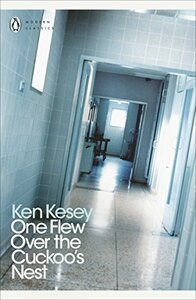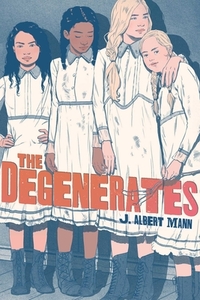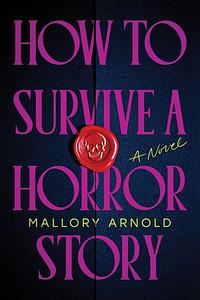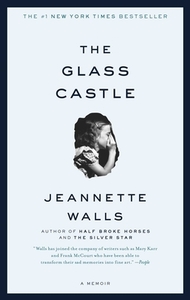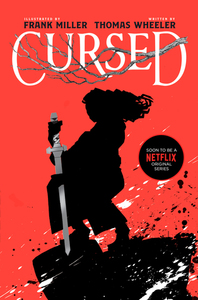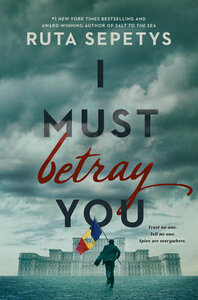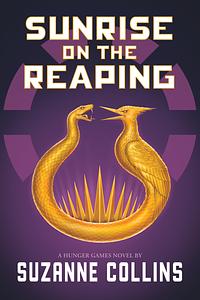Take a photo of a barcode or cover
toggle_fow's Reviews (1.05k)
challenging
informative
medium-paced
What it says on the tin. This book is an in-depth examination of the phenomenon of scam compounds in Southeast Asia, where cybercrime is conducted as a massive corporate enterprise.
Organized crime has been in the cybercrime business since its inception, but these large-scale compounds tied to human trafficking are a more recent development. And, since they first targeted mainly Chinese and Chinese-speaking populations, this threat is less well-known in the West.
The authors do a thorough dissection of the issue, from the evolution of these compounds and the organizations that run them, to what factors allow them to exist, to the various pressures that drive victims to fall prey to being trafficked into scam work. They clearly are drawing from not just a large body of worldwide and Chinese-language reporting, but also from personal experience working with trafficking victims and interviewing people involved in all facets of the SE Asia cybercrime industry.
I have a massive amount of respect for the work this book represents. The authors are bringing great value to the table by offering Chinese-language sources and primary source interviews to an English-speaking audience, which otherwise would have no access to this information. Millions of dollars have been lost and lives ruined by these scams all across the world and the threat is still poorly understood, so this book's work is sorely needed.
However, I don't think this book completely comes down from its academic height to meet a layperson reader at their level.
It is still structured and cited like an academic article, dry and repetitive in spots. The topic does not lack interest, and has all the potential to be gripping. If this book is in fact meant to reach a general audience, I would have liked to see the authors work a little more to convey the human impact and story of the issue as well as the information.
Organized crime has been in the cybercrime business since its inception, but these large-scale compounds tied to human trafficking are a more recent development. And, since they first targeted mainly Chinese and Chinese-speaking populations, this threat is less well-known in the West.
The authors do a thorough dissection of the issue, from the evolution of these compounds and the organizations that run them, to what factors allow them to exist, to the various pressures that drive victims to fall prey to being trafficked into scam work. They clearly are drawing from not just a large body of worldwide and Chinese-language reporting, but also from personal experience working with trafficking victims and interviewing people involved in all facets of the SE Asia cybercrime industry.
I have a massive amount of respect for the work this book represents. The authors are bringing great value to the table by offering Chinese-language sources and primary source interviews to an English-speaking audience, which otherwise would have no access to this information. Millions of dollars have been lost and lives ruined by these scams all across the world and the threat is still poorly understood, so this book's work is sorely needed.
However, I don't think this book completely comes down from its academic height to meet a layperson reader at their level.
It is still structured and cited like an academic article, dry and repetitive in spots. The topic does not lack interest, and has all the potential to be gripping. If this book is in fact meant to reach a general audience, I would have liked to see the authors work a little more to convey the human impact and story of the issue as well as the information.
challenging
dark
emotional
reflective
sad
tense
medium-paced
Plot or Character Driven:
A mix
Strong character development:
Yes
Loveable characters:
No
Diverse cast of characters:
Yes
Flaws of characters a main focus:
Complicated
It's me again, tapdancing into the room to lay this worthless 3-star review of a complex classic book in front of you.
One Flew Over the Cuckoo's Nest is the story of a men's ward of a mental hospital. It's run by a despotic nurse and a spineless doctor, and all the patients are emptied-out shells going through a wooden daily routine. When a new patient arrives, he upends the status quo and brings some color back into these men, who have had the living spark crushed out of them by "the Combine."
This book was a deeply unpleasant experience. It was vulgar, scary, grimy, disorienting, and overall made me shudder. Sexually gross, racially gross, abuses and indignities from the first page to the last, and a tragic ending. There was zero fun had while I was reading.
HOWEVER. The skill with which the book is written absolutely jumps off the page.
The narrator is "Chief Bromden," a Native American patient who suffers from episodes of psychosis, but pretends to be deaf and dumb when he is not. The way the author puts us into Bromden's perspective, which tilts and distorts and bends in psychedelic ways, masterfully conveys his fraught inner world. At first I wasn't sure what exactly was going on, as the narrative would describe something I knew could not literally be happening, but I got used to it.
This literary feat of embodying the insane is, in my opinion, the main thing the book has to offer. Kesey apparently underwent experimental drug trials and worked at a mental hospital, which I'm sure informed his ability to bring to life an existence most people can't truly imagine. I also suspect that his writing was also assisted by the copious drugs he was doing both in and outside of the aforementioned trials.
One Flew Over the Cuckoo's Nest is the story of a men's ward of a mental hospital. It's run by a despotic nurse and a spineless doctor, and all the patients are emptied-out shells going through a wooden daily routine. When a new patient arrives, he upends the status quo and brings some color back into these men, who have had the living spark crushed out of them by "the Combine."
This book was a deeply unpleasant experience. It was vulgar, scary, grimy, disorienting, and overall made me shudder. Sexually gross, racially gross, abuses and indignities from the first page to the last, and a tragic ending. There was zero fun had while I was reading.
HOWEVER. The skill with which the book is written absolutely jumps off the page.
The narrator is "Chief Bromden," a Native American patient who suffers from episodes of psychosis, but pretends to be deaf and dumb when he is not. The way the author puts us into Bromden's perspective, which tilts and distorts and bends in psychedelic ways, masterfully conveys his fraught inner world. At first I wasn't sure what exactly was going on, as the narrative would describe something I knew could not literally be happening, but I got used to it.
This literary feat of embodying the insane is, in my opinion, the main thing the book has to offer. Kesey apparently underwent experimental drug trials and worked at a mental hospital, which I'm sure informed his ability to bring to life an existence most people can't truly imagine. I also suspect that his writing was also assisted by the copious drugs he was doing both in and outside of the aforementioned trials.
challenging
dark
emotional
sad
tense
medium-paced
Plot or Character Driven:
A mix
Strong character development:
Yes
Loveable characters:
Yes
Diverse cast of characters:
Yes
Flaws of characters a main focus:
Yes
This book follows the stories of four girls in the early 1900s who were institutionalized in a school for the "feeble-minded." They each have a different story, perspective, and way of dealing with the heinous treatment they are subjected to by a system that views them as less than human.
This is as much a historical primer on eugenics in the US as it is a story of resilience, resistance, and human connection. It doesn't shy away from the filthy, undignified details and the author's note says that every bit of dialogue from the doctors, attendants, and nurses was taken straight from historical medical notes from real institutions like these.
This is as much a historical primer on eugenics in the US as it is a story of resilience, resistance, and human connection. It doesn't shy away from the filthy, undignified details and the author's note says that every bit of dialogue from the doctors, attendants, and nurses was taken straight from historical medical notes from real institutions like these.
mysterious
reflective
medium-paced
Plot or Character Driven:
Plot
Strong character development:
No
Loveable characters:
Complicated
Diverse cast of characters:
Yes
Flaws of characters a main focus:
No
This philosophical science fiction story aims at being a sort of Speaker for the Dead-esque exploration of humans colonizing a new planet. They have to reckon with the ways they must change to survive and, when the children born on the new planet start growing up... different, what exactly it means to be human.
This book is the second in a series, but worked fine as a standalone. The beginning, when the colonists were navigating space travel issues and how to survive on the new planet, was the strongest part in my opinion. This story is actually better and more competently written than the cover art suggests, but the latter half got bogged down with odd pacing and didn't fully succeed at driving home its themes.
This book is the second in a series, but worked fine as a standalone. The beginning, when the colonists were navigating space travel issues and how to survive on the new planet, was the strongest part in my opinion. This story is actually better and more competently written than the cover art suggests, but the latter half got bogged down with odd pacing and didn't fully succeed at driving home its themes.
adventurous
dark
mysterious
tense
medium-paced
Plot or Character Driven:
Plot
Strong character development:
No
Loveable characters:
No
Diverse cast of characters:
Yes
Flaws of characters a main focus:
Yes
My reaction to this is a very solid, "Hmm."
This story follows a colorful cast of horror writers (and one normie) who are called to a recently deceased famous writer's mansion in the country for his will reading. They are all expecting to receive something from the decedent, but they get more than they bargained for when things turn deadly.
The situation reminded me of if The Fall of the House of Usher and And Then There Were None had a gory, violent, blood-soaked baby.
Each character has secrets to hide, and each character gets rotating POV chapters. With each shift of POV, we learn more about why these people are being forced by a dead man to play the worst escape room of all time. But the further we get in the story, the more you have to question - what about the normie, Melanie? Why is SHE in this mess, when she seemingly has nothing to do with the background tapestry of lies, grudges, and sins that ties the others together?
As someone very new to the horror genre, it's hard to know if my reactions are really to this specific book, or if it's the broader genre itself.
The violent, creative deaths were certainly horrifying. The tense, uncertain atmosphere as I got closer to the end of the book, where I began to wonder if I actually knew what I thought I knew, was even more horrifying in my opinion. The story held my attention the whole way through, and I very much wanted to know every answer to the many present mysteries! Three stars for a solid, compelling narrative.
I didn't actually care about any of the characters. I'm not sure if I was supposed to.
Two other things stymied the satisfaction I wanted to feel at the end of the book:
1. The house. What? And why? This is probably a horror genre thing and not actually a problem, but I cannot be satisfied with zero exploration of the wider ramifications of sentient monster houses. Melanie even thinks to herself about this, and then none of it ever comes up again or matters. Again, probably a horror genre thing. I can read about the wildest fantasy worlds without blinking an eye, but for some reason random, unexplained, impossible stuff in what is otherwise the real world makes my suspension of disbelief pump the brakes.
2. Melanie. I wasn't convinced by her character arc. She seemed to go from normal and well-meaning to unapologetically ruthless and murderous like the flip of a light switch. I would have believed seeing this side of her come out gradually, as if it had always been there, hidden under her people-pleasing, anxious behavior. The flashback reveal of her meeting with Mortimer didn't explain any of this. She was barely conscious at the time.
And the rationalization the story offers doesn't explain it either, in my opinion. Some of the people trapped in the game deserved what they got, sure. Crystal was the most deplorable of all of them, and I don't really blame Melanie for murdering her. But SOME of them DIDN'T.
Buck, honestly, was maybe the best person in the whole book from an ethics standpoint. Oh no, he's a drunk and a slob? So awful. He blackmailed a horrible, disgusting man who was not only cheating on his sick wife, but also was unrelentingly cruel to everyone he ever met, AND partners in crime with his serial killer sentient house, probably with scores of bodies on his hands? Tragic. I'm scandalized. Like, come on. This was - if not righteous - absolutely logically justifiable.
And not only did Melanie personally kill him for that, but she trapped him in a cellar and worked there for days, listening to his pleas and cries for help as he slowly died. That's not 'repressed, abused girl turns her infinite inner pool of resentment and self-hatred into a firehose of vitriol to wreak vengeance on an unjust world.' That's a TRUE sociopath move.
I do NOT see that in the Melanie at the beginning of the book, or the Melanie in the middle of the book. The whiplash-sudden shift is jarring and seems to come out of nowhere. It was hard to feel like the ending satisfied or even made sense, when after Melanie comes back she again seems to revert to her previous character. She doesn't become a dark queen intent on being the next harbinger of revenge. She seems intent on never going back to the house, and never feeding it, even when her awful, abusive mother gives her the opportunity.
Why? It left me with an overall feeling of confusion, not horror.
This story follows a colorful cast of horror writers (and one normie) who are called to a recently deceased famous writer's mansion in the country for his will reading. They are all expecting to receive something from the decedent, but they get more than they bargained for when things turn deadly.
The situation reminded me of if The Fall of the House of Usher and And Then There Were None had a gory, violent, blood-soaked baby.
Each character has secrets to hide, and each character gets rotating POV chapters. With each shift of POV, we learn more about why these people are being forced by a dead man to play the worst escape room of all time. But the further we get in the story, the more you have to question - what about the normie, Melanie? Why is SHE in this mess, when she seemingly has nothing to do with the background tapestry of lies, grudges, and sins that ties the others together?
As someone very new to the horror genre, it's hard to know if my reactions are really to this specific book, or if it's the broader genre itself.
The violent, creative deaths were certainly horrifying. The tense, uncertain atmosphere as I got closer to the end of the book, where I began to wonder if I actually knew what I thought I knew, was even more horrifying in my opinion. The story held my attention the whole way through, and I very much wanted to know every answer to the many present mysteries! Three stars for a solid, compelling narrative.
I didn't actually care about any of the characters. I'm not sure if I was supposed to.
Two other things stymied the satisfaction I wanted to feel at the end of the book:
1. The house. What? And why? This is probably a horror genre thing and not actually a problem, but I cannot be satisfied with zero exploration of the wider ramifications of sentient monster houses. Melanie even thinks to herself about this, and then none of it ever comes up again or matters. Again, probably a horror genre thing. I can read about the wildest fantasy worlds without blinking an eye, but for some reason random, unexplained, impossible stuff in what is otherwise the real world makes my suspension of disbelief pump the brakes.
2. Melanie. I wasn't convinced by her character arc. She seemed to go from normal and well-meaning to unapologetically ruthless and murderous like the flip of a light switch. I would have believed seeing this side of her come out gradually, as if it had always been there, hidden under her people-pleasing, anxious behavior. The flashback reveal of her meeting with Mortimer didn't explain any of this. She was barely conscious at the time.
And the rationalization the story offers doesn't explain it either, in my opinion. Some of the people trapped in the game deserved what they got, sure. Crystal was the most deplorable of all of them, and I don't really blame Melanie for murdering her. But SOME of them DIDN'T.
Buck, honestly, was maybe the best person in the whole book from an ethics standpoint. Oh no, he's a drunk and a slob? So awful. He blackmailed a horrible, disgusting man who was not only cheating on his sick wife, but also was unrelentingly cruel to everyone he ever met, AND partners in crime with his serial killer sentient house, probably with scores of bodies on his hands? Tragic. I'm scandalized. Like, come on. This was - if not righteous - absolutely logically justifiable.
And not only did Melanie personally kill him for that, but she trapped him in a cellar and worked there for days, listening to his pleas and cries for help as he slowly died. That's not 'repressed, abused girl turns her infinite inner pool of resentment and self-hatred into a firehose of vitriol to wreak vengeance on an unjust world.' That's a TRUE sociopath move.
I do NOT see that in the Melanie at the beginning of the book, or the Melanie in the middle of the book. The whiplash-sudden shift is jarring and seems to come out of nowhere. It was hard to feel like the ending satisfied or even made sense, when after Melanie comes back she again seems to revert to her previous character. She doesn't become a dark queen intent on being the next harbinger of revenge. She seems intent on never going back to the house, and never feeding it, even when her awful, abusive mother gives her the opportunity.
Why? It left me with an overall feeling of confusion, not horror.
challenging
emotional
hopeful
sad
tense
medium-paced
Respectfully, what on EARTH was going on in this book.
I read this days ago and I'm still speechless.
????
The Glass Castle is Jeannette Walls' memoir of a vagabond childhood wandering the country with her siblings and "free spirit" parents. It's beautifully written and, like any incomprehensible disaster, impossible to look away from.
We've got mental illness. We've got joyful childhood memories. We've got the slow realization of growing up that your parents aren't as perfect as you thought when you were little. Generational curses passed down in the form of trauma. Warm, complicated, loyal family bonds. Child sexual assault. Wack amounts of child neglect and endangerment that somehow by the grace of God nobody died from. AND MUCH MORE.
I'm not sure what to do with this other than silently nod at it and walk away. I definitely recommend this book if you're interested in the many twisted-up shades of awful and beautiful in family relationships, psychology, or stories of resilience in hardship.
I read this days ago and I'm still speechless.
????
The Glass Castle is Jeannette Walls' memoir of a vagabond childhood wandering the country with her siblings and "free spirit" parents. It's beautifully written and, like any incomprehensible disaster, impossible to look away from.
We've got mental illness. We've got joyful childhood memories. We've got the slow realization of growing up that your parents aren't as perfect as you thought when you were little. Generational curses passed down in the form of trauma. Warm, complicated, loyal family bonds. Child sexual assault. Wack amounts of child neglect and endangerment that somehow by the grace of God nobody died from. AND MUCH MORE.
I'm not sure what to do with this other than silently nod at it and walk away. I definitely recommend this book if you're interested in the many twisted-up shades of awful and beautiful in family relationships, psychology, or stories of resilience in hardship.
medium-paced
Plot or Character Driven:
Plot
Strong character development:
No
Loveable characters:
No
Diverse cast of characters:
Yes
Flaws of characters a main focus:
No
Unfortunately, this was soulless.
Cursed is supposed to be a King Arthur retelling from the perspective of Nimue, the eventual Lady of the Lake. It's a collaboration between an author and Frank Miller, an extremely famous comic book artist who provided the illustrations.
The story is a little chaotic, mixing real geography and fantasy lands, and a wild array of disparate elements including: a weirdly occult version of the Catholic church, fae tribes each with their own nature affinity, the sword as a cursed object that possesses its wielder with bloodlust, Merlin as a drunk shyster, etc.
The long and short of it is that the weirdly occult Catholic church (evil) is perpetrating a genocide against the fae (innocent, peaceful). When Nimue's entire village is murdered, she swears vengeance against the warrior priests. Arthur is also there, as a mostly incidental sellsword who doesn't matter to the plot other than being in love with Nimue.
Sadly, there's just nothing here I could summon a single iota of interest in.
Nimue seemingly has no agency as a character, other than falling into berserker fugue states and killing a lot of priests. When she's not doing that, she's listless and mindless. Even when she's the supposed Queen of the Fae, she can't seem to think her way around anything more complicated than a fairly simple city assault. Arthur is just there. Merlin is running around causing trouble for everyone and disappointing everyone. None of the fae characters or cultures are really interesting.
It's all just lifeless, and then it ends not quite on a cliffhanger but certainly with almost nothing resolved. Several parties are teetering on the precipice of danger still, spurring you to read the next book to find out how they escape. But there is no next book.
When I looked a little further into this, it turns out the author is in fact a screenwriter by trade, and this book was developed simultaneously with a Netflix show as a multimedia project. The show was predictably canceled after one season, and no further books were ever published.
Good, I guess?
This lack of commitment to the novel as a medium explains a little bit of why this book is such an empty husk. Alas.
You would hope that the illustrations might at least be a consolation, but they are instead just the last nail in the coffin.
I am a huge proponent of illustrations in YA and adult fantasy books that don't often have them. However, the art here is just deeply weird and off-putting. I looked up some of Frank Miller's comic book art, and it seems like he just draws Like That. There's probably something I'm missing since he is extremely respected in the industry, but frankly I never want to be forced to gaze upon any of these images ever again.
The dramatic, extremely stylized way people are portrayed is odd at best and gross at worst.
The weird monkey-mouth lips? The way every male character has the same hulking, Conan the Barbarian physique and hairstyle? Arthur, who is a love interest for teenage Nimue and repeatedly referred to as a "boy," is drawn over and over again like a 35-year-old Tarzan from the cover of an Edgar Rice Burroughs novel. There's one where he's literally wearing a loincloth. Why, Frank??
Overall, definitely a disappointing read. Let this be a lesson to me in the dangers of cover buying.
Cursed is supposed to be a King Arthur retelling from the perspective of Nimue, the eventual Lady of the Lake. It's a collaboration between an author and Frank Miller, an extremely famous comic book artist who provided the illustrations.
The story is a little chaotic, mixing real geography and fantasy lands, and a wild array of disparate elements including: a weirdly occult version of the Catholic church, fae tribes each with their own nature affinity, the sword as a cursed object that possesses its wielder with bloodlust, Merlin as a drunk shyster, etc.
The long and short of it is that the weirdly occult Catholic church (evil) is perpetrating a genocide against the fae (innocent, peaceful). When Nimue's entire village is murdered, she swears vengeance against the warrior priests. Arthur is also there, as a mostly incidental sellsword who doesn't matter to the plot other than being in love with Nimue.
Sadly, there's just nothing here I could summon a single iota of interest in.
Nimue seemingly has no agency as a character, other than falling into berserker fugue states and killing a lot of priests. When she's not doing that, she's listless and mindless. Even when she's the supposed Queen of the Fae, she can't seem to think her way around anything more complicated than a fairly simple city assault. Arthur is just there. Merlin is running around causing trouble for everyone and disappointing everyone. None of the fae characters or cultures are really interesting.
It's all just lifeless, and then it ends not quite on a cliffhanger but certainly with almost nothing resolved. Several parties are teetering on the precipice of danger still, spurring you to read the next book to find out how they escape. But there is no next book.
When I looked a little further into this, it turns out the author is in fact a screenwriter by trade, and this book was developed simultaneously with a Netflix show as a multimedia project. The show was predictably canceled after one season, and no further books were ever published.
Good, I guess?
This lack of commitment to the novel as a medium explains a little bit of why this book is such an empty husk. Alas.
You would hope that the illustrations might at least be a consolation, but they are instead just the last nail in the coffin.
I am a huge proponent of illustrations in YA and adult fantasy books that don't often have them. However, the art here is just deeply weird and off-putting. I looked up some of Frank Miller's comic book art, and it seems like he just draws Like That. There's probably something I'm missing since he is extremely respected in the industry, but frankly I never want to be forced to gaze upon any of these images ever again.
The dramatic, extremely stylized way people are portrayed is odd at best and gross at worst.
The weird monkey-mouth lips? The way every male character has the same hulking, Conan the Barbarian physique and hairstyle? Arthur, who is a love interest for teenage Nimue and repeatedly referred to as a "boy," is drawn over and over again like a 35-year-old Tarzan from the cover of an Edgar Rice Burroughs novel. There's one where he's literally wearing a loincloth. Why, Frank??
Overall, definitely a disappointing read. Let this be a lesson to me in the dangers of cover buying.
hopeful
informative
sad
tense
medium-paced
Plot or Character Driven:
Plot
Strong character development:
No
Loveable characters:
Yes
Diverse cast of characters:
No
Flaws of characters a main focus:
No
Ruta Sepetys doesn't miss.
This book explores 1989 Romania at the nadir of Ceausescu's long rule through the eyes of Cristian, a teenage boy.
Cristian likes hanging out with the girl next door, watching bootleg Western movies, and listening to Radio Free Europe with his grandfather, who urges him to think beyond the limitations of their lives. And there are many limitations: Romanians can't travel internationally, must stand in ration lines for everyday essentials, work long hours to barely get by, and must guard their words carefully, aware every moment that the secret police are waiting to punish any dissent or disloyalty to the regime.
When Cristian himself is blackmailed by the secret police into spying on the American ambassador and his son, he finds himself trapped. He doesn't want to be an informer, but he has no choice.
The story starts out slow and ordinary, exploring interesting moments of daily life in this unfamiliar setting. As Cristian's unwilling involvement with the secret police grows, so does the intensity, until the eventual revolution fills the streets with danger and change.
Overall, this story didn't reach my emotions as much as some of Sepetyes' other works, but definitely delivered the feeling of accessible, lived-in history that I expect from her. I can't believe all this stuff was happening in late 1989, practically 1990.
This book explores 1989 Romania at the nadir of Ceausescu's long rule through the eyes of Cristian, a teenage boy.
Cristian likes hanging out with the girl next door, watching bootleg Western movies, and listening to Radio Free Europe with his grandfather, who urges him to think beyond the limitations of their lives. And there are many limitations: Romanians can't travel internationally, must stand in ration lines for everyday essentials, work long hours to barely get by, and must guard their words carefully, aware every moment that the secret police are waiting to punish any dissent or disloyalty to the regime.
When Cristian himself is blackmailed by the secret police into spying on the American ambassador and his son, he finds himself trapped. He doesn't want to be an informer, but he has no choice.
The story starts out slow and ordinary, exploring interesting moments of daily life in this unfamiliar setting. As Cristian's unwilling involvement with the secret police grows, so does the intensity, until the eventual revolution fills the streets with danger and change.
Overall, this story didn't reach my emotions as much as some of Sepetyes' other works, but definitely delivered the feeling of accessible, lived-in history that I expect from her. I can't believe all this stuff was happening in late 1989, practically 1990.
adventurous
medium-paced
Plot or Character Driven:
Plot
Strong character development:
No
Loveable characters:
Complicated
Diverse cast of characters:
Yes
Flaws of characters a main focus:
No
This book is a space fantasy adventure billed as "Firefly meets Indiana Jones" and honestly that description is pretty on the nose.
I saw the Firefly connections right away, and the Indiana Jones comes out strongly a little later on. However, it's not some cookie-cutter done-to-death cliche. The world is an interesting one, mixing things we've seen before with things we haven't to create a setting that you can jump right into with both feet, while still preserving intriguing worldbuilding mysteries.
The writing and production quality is good. This is no self-pub slapped onto the Amazon shelf without even being edited - the author clearly holds himself to a high standard and turned out a top-notch product.
Ultimately, for all these things I would give the book a solid 3.5 stars.
Where I was left wishing for a little more was in the characters' relationships.
Firefly is HEAVY on the "found family" dynamic, and this book is as well - or should be. It might be earlier on in the timeline, before the crew has truly meshed and deepened their relationships, but from all the textual clues I picked up it seems like they've been flying together for a while already. And yet, there is a lot of empty space between these people where the loyalty, friction, and in-jokes should be. Even their many and varied backstories we learn about more through POV info-dumps than through in-world interactions and discussions, which serves to strengthen the feeling that they're all living somewhat in isolation, despite their proximity.
You get a good understanding of Grey, the cocky, fast-talking Nathan Fillion of the group. I felt like Dot, a mysterious young warrior, was the runner-up when it came to characters that actually seemed real to me. Most of the others still felt like a baseball card list of tropes and characteristics by the end of the book. Honestly, I almost immediately liked Cello and Eddie, two non-crew latecomers to the scene, more than the entire rest of the crew.
Overall, this was a fun story with a cracking plot and lots to explore. I would definitely recommend it if you're looking for some space pirate adventure.
I saw the Firefly connections right away, and the Indiana Jones comes out strongly a little later on. However, it's not some cookie-cutter done-to-death cliche. The world is an interesting one, mixing things we've seen before with things we haven't to create a setting that you can jump right into with both feet, while still preserving intriguing worldbuilding mysteries.
The writing and production quality is good. This is no self-pub slapped onto the Amazon shelf without even being edited - the author clearly holds himself to a high standard and turned out a top-notch product.
Ultimately, for all these things I would give the book a solid 3.5 stars.
Where I was left wishing for a little more was in the characters' relationships.
Firefly is HEAVY on the "found family" dynamic, and this book is as well - or should be. It might be earlier on in the timeline, before the crew has truly meshed and deepened their relationships, but from all the textual clues I picked up it seems like they've been flying together for a while already. And yet, there is a lot of empty space between these people where the loyalty, friction, and in-jokes should be. Even their many and varied backstories we learn about more through POV info-dumps than through in-world interactions and discussions, which serves to strengthen the feeling that they're all living somewhat in isolation, despite their proximity.
You get a good understanding of Grey, the cocky, fast-talking Nathan Fillion of the group. I felt like Dot, a mysterious young warrior, was the runner-up when it came to characters that actually seemed real to me. Most of the others still felt like a baseball card list of tropes and characteristics by the end of the book. Honestly, I almost immediately liked Cello and Eddie, two non-crew latecomers to the scene, more than the entire rest of the crew.
Overall, this was a fun story with a cracking plot and lots to explore. I would definitely recommend it if you're looking for some space pirate adventure.
adventurous
dark
emotional
sad
tense
medium-paced
Plot or Character Driven:
Plot
Strong character development:
Yes
Loveable characters:
Yes
Diverse cast of characters:
Yes
Flaws of characters a main focus:
Yes
This book has a doomed aura, as if haunting horror movie music were constantly playing in the background.
We already know the basic outline of Haymitch's story from the main Hunger Games trilogy, but the instant I heard about this book I knew it was going to be riveting, and it is. You see the seeds of the Haymitch we know in his younger self, and the seeds of the later rebellion in his Quarter Quell story. You rarely read a story where the righteous, scrappy rebels lose and the oppressive state wins, so it was an interesting experience that shines a light on the characters' reluctance to oppose the Capitol.
Why does everyone just submit? Why do the Districts not throw off the Capitol's yoke? Well, Haymitch's life is a case study in what happens when you try. It's not such an easy choice to make. There are also strong themes of propaganda, and the power of a false narrative.
The easter eggs were present, but not overwhelming. And I'm so glad for the epilogue, because otherwise I would have been irretrievably sad. I was still so, so sad. But the epilogue at least salvaged the shards of my will to live.
We already know the basic outline of Haymitch's story from the main Hunger Games trilogy, but the instant I heard about this book I knew it was going to be riveting, and it is. You see the seeds of the Haymitch we know in his younger self, and the seeds of the later rebellion in his Quarter Quell story. You rarely read a story where the righteous, scrappy rebels lose and the oppressive state wins, so it was an interesting experience that shines a light on the characters' reluctance to oppose the Capitol.
Why does everyone just submit? Why do the Districts not throw off the Capitol's yoke? Well, Haymitch's life is a case study in what happens when you try. It's not such an easy choice to make. There are also strong themes of propaganda, and the power of a false narrative.
The easter eggs were present, but not overwhelming. And I'm so glad for the epilogue, because otherwise I would have been irretrievably sad. I was still so, so sad. But the epilogue at least salvaged the shards of my will to live.

